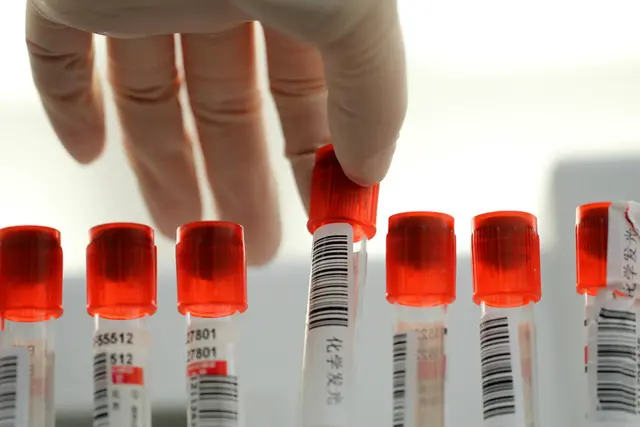To tell or not to tell. The old dilemma of whether or not doctors should disclose HIV status to spouses has been renewed after a Chinese man filed a lawsuit against a hospital for failing to inform him of his wife's illness.
The young husband, Xiao Xin (pseudonym), brought the lawsuit against a hospital in Yongcheng, Henan province, after he found he was infected with HIV last year.
Last March, he and his wife went for a premarital health check at the Yongcheng Women's and Children's Hospital. "My check went smoothly, but doctors asked my wife to take three more blood tests. I had my concerns, but doctors said there was nothing to worry about," Xiao told Xinhua.
The hospital told Xiao's wife she was infected with HIV, but kept the information from the husband.
Xiao insisted that his wife was not properly informed of the risks of HIV either. He filed to sue the hospital for 1.2 million yuan in damages last July. The city court has not yet accepted his case, citing a backlog in cases as the reason.
The Yongcheng Women's and Children's Hospital has not responded to requests for an interview.
In recent weeks, Xiao's lawsuit has sparked new debates in medical and legal circles about the privacy of HIV-positive patients.
Right to know?
China's AIDS Prevention and Treatment Regulation says the privacy of patients shall be protected and their HIV status shall not be disclosed without consent.
A Chinese law on Maternal and Children's Health says doctors should give "medical advice" if they find couples with infectious diseases who intend to marry. But the law's ambiguous wording does not specify whether doctors must advise an individual or both the spouse and patient, so doctors rarely divulge HIV status to spouses. "Usually, when couples come for premarital health checks, the doctors are not liable to disclose a patient's HIV status because of privacy issues," said Wu Xia, a doctor with the Beijing Maternal and Child Health Care Hospital.
But some lawyers disagree.
"When there are conflicting obligations to protect patient confidentially and prevent their spouse from infection, the right to health should take precedence over the right to privacy," said Wang Jijin, a Beijing-based lawyer.
In common practice, the responsibility is mainly with the patient to tell their spouse or partner about their status, said Wu Zunyou, director of AIDS prevention at the Chinese Center for Disease Control and Prevention.
"But again there is the ethical dilemma -- most of those infected do not want to disclose their status, fearing discrimination," said Wu.
Yunan's practice
Though national laws have allowed room for dispute, local laws in some areas have saved doctors from making the tough decision.
In Yunnan Province and Guangxi Zhuang Autonomous Region, where the AIDS epidemic is worse due to an increase in cross-border drug flow, local law requires doctors to inform patients of their spouse's status.
According to the Yunnan AIDS Prevention Regulation, a patient has one month to tell his or her spouse following a positive diagnosis. If they fail to do so, disease prevention staff will visit their families and inform them.
By the end of October last year, China had 575,000 people infected with HIV, and about 88,000, or 15 percent, are living in Yunnan.
"When the rule was first put in place in 2007, many people objected, but it was crucial for us to implement the rule to stop the disease from spreading," said Lu Lin, disease prevention chief in Yunnan.
In the last eight years, Yunnan has informed 42,685 people of their spouse or partner's HIV-positive status. Lu said in the last five years, the disclosure rule has prevented at least 1,000 HIV cases.
It took Feng, a 33-year-old AIDS patient, a long time before he allowed doctors to tell his wife about his diagnosis. "I was afraid that she would divorce me and my family would fall apart," Feng said.
"My wife burst into tears when she tested negative for the virus. I never felt more relieved, he said."The doctors repeatedly remind us to use condoms and take other precautionary measures to keep her from infection."
Yunnan diagnoses at least 10,000 new HIV patients every year, 40 percent of whom are married or have steady sexual partners, said Lu. "It is very necessary for us to continue with the disclosure rule," he said.
However, not all provinces can enforce rules like Yunnan. "In places where discrimination against HIV patients is severe, indiscreetly leaking information about their infection can cause unsympathetic and prejudiced reactions," said Wu.
"It is impossible to make a national law, but local provinces should make their own laws according to the seriousness of their situation," he said.
 简体中文
简体中文

